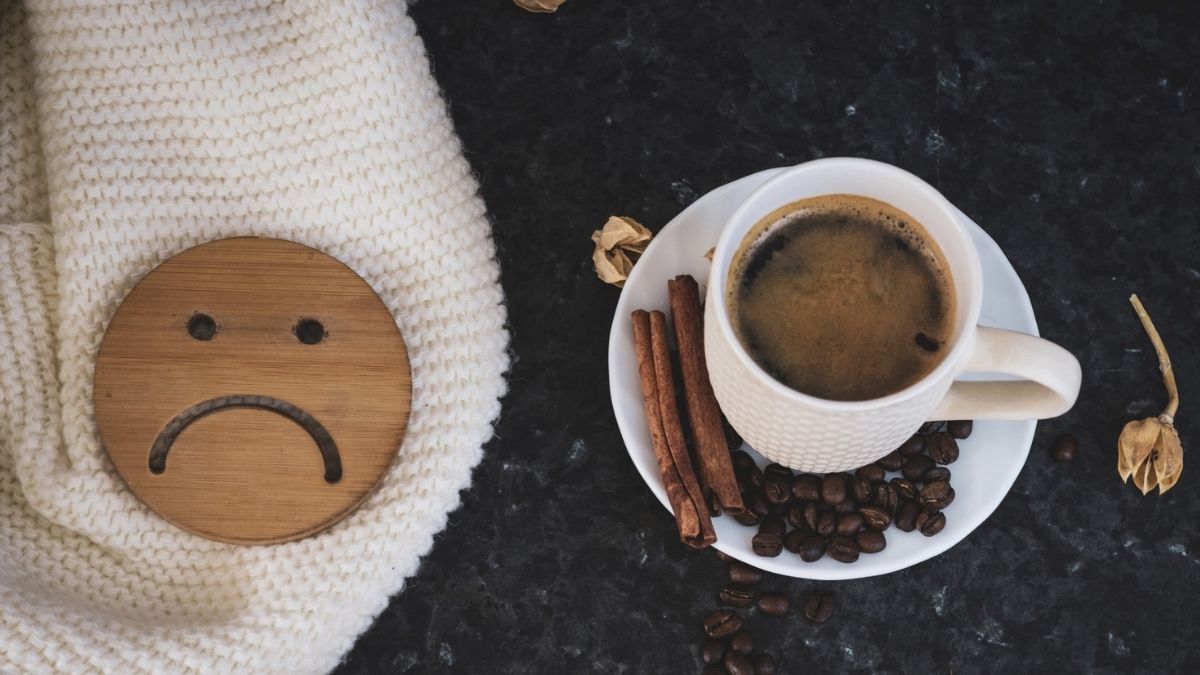It’s something we’ve all experienced. We expect we’ve just made a delicious morning coffee, then… That flavor, that scent… It’s like a combination of fireplace soot and a wet ashtray. As these are creative labels, I’m pretty sure most of us have tasted ashy or burnt coffee. Such tastes could be caused by a variety of factors, including the quality of coffee beans, the temperature of the water, and the amount of time spent brewing.
In this article, we will explain some of the common reasons why your espresso may taste burned and what are the remedies.
Why Does Espresso Taste Burnt? Reasons And Solutions
Stale Coffee Beans
Regardless of how fresh your coffee beans may look or smell, they could possibly be stale already. It’s vital to understand that brewing coffee creates carbon dioxide within coffee beans. So the more carbon dioxide created, also more taste leaves from the coffee beans.
In conclusion, if the beans are not really properly stored or that have been kept out in the open for long periods of time, this might be the cause for your cup of coffee tasting different than you really want to.
To resolve this issue, you must discard any poorly stored coffee beans and replace them with new ones. Purchase amounts that will last you for a week or two. It may be bothersome for some, however, there’s no denying that your coffee will taste best if it’s fresh.
Improper Roasting Process
Most coffee enthusiasts enjoy roasting their own coffee beans, however, that doesn’t guarantee that you’ll always make it correctly. Roasting coffee beans necessitates the use of steady temperature throughout the procedure, which could be challenging if you do not have the right roasting instruments.
Also, it’s crucial to understand that roasting coffee beans can be unpredictable at times. In reality, the quality of the coffee roasted by shop companies varies as well. The identical thing you purchased now may taste substantially different when you purchased it at a later date.
So, how do you go about resolving this? We recommend double-checking your formula to ensure that it is the correct preparation for roasting coffee. Furthermore, we recommend that you inspect your devices for any flaws. If somehow the coffee really tastes strange, you should think about whether this is the suitable kind of coffee bean for you.
Inaccurate Temperature
You should be aware that to produce a decent espresso cup, you should brew it at the right temperature level. It is highly suggested making the coffee at around 205 °F, which would be considered the optimum temperature in brewing coffee since it maintains the nice and hot but really not boiling.
In brewing your coffee using the recommended temperature, the water turns hot enough just to remove toxic oils and undesirable tastes. When you brew your coffee at a lower temperature, it may come out under-extracted, leading to a poor flavor.
This issue has a very simple answer. Everything you must do is buy a thermometer to track the status of the brewing temperature. You may choose between a laser thermometer or a regular thermometer. But take note that laser thermometers can be more expensive.
When you don’t prefer to use a thermometer or you just don’t have one at home, there is a technique to assure a nice brew. Just heat up the water till it boils, then turn that off for around 30 seconds prior to actually brewing your coffee beans.
Poor Quality Of Water
If you prepare your coffee using tap water, then you should think about switching to a new water supply. Tap water contains contaminants that can easily interfere with the taste of the coffee. It’s similar to putting undesirable components into a chemistry equation, the outcome would be altered.
The solution to the issue is fairly straightforward. You’ll need to filter the tap water before brewing your coffee. Or, if you suffer from acid reflux, you may use a whole other water source, like alkaline water, which is ideal for brewing coffee.
Wrong Equipment Used
Another factor that might contribute to the burned flavor of coffee that you’re attempting to prevent is using the incorrect equipment. You could be attempting to create an espresso without having an espresso coffee machine. Although it is possible, the final outcome may not be as great as if you were using a machine.
Another thing to consider would be where you put your coffee once it has been brewed as well as what you sip it from. You should quit putting boiling hot coffee into something like a plastic cup. Coffee should be poured either into stainless steel containers, glass glasses, or ceramic mugs.
Brewing Period
The burned flavor of coffee could be caused by brewing it for an excessively long period of time. If coffee has been brewed for an excessive time, then it becomes over-extracted, creating a bitter aftertaste. You also wouldn’t want your coffee to be under-brewed because this will lead to under-extraction and an extremely poor flavor.
Choosing the optimal brewing length isn’t quite as simple as providing you with a certain time. A very little trial and error would be required. It implies that you ought to gradually change your time to discover what works best for you, particularly if you enjoy testing different dishes on a regular basis.
Overly Fine Coffee Grounds
Trying to grind your coffee beans too finely might lead to over-extraction that can damage your coffee. It is similar to overcooking in that it turns into a bitter-tasting coffee. To circumvent this, use the appropriate grind degree for the brewing technique you’ve chosen.
What Does A Good Cup Of Espresso Taste Like?
The flavor of espresso must be smooth and reminiscent of creamy toffee flavor. Ground fineness, extracting duration, as well as the temperature of the water are all carefully measured characteristics that contribute to the right taste. Espresso shouldn’t have a burnt flavor.
The fragrant enchantment of physical and chemical science is created by the proper type of espresso. Making a flawless cup required a lot of work and dedication.
An excellent espresso must have a strong scent, a substantial body, and a solid crema. It’s the perfect combination of four basic components: water, coffee beans, temperature, and brewing method.
There’s really no other beverage that compares to the flavor and experience of a decent cup of espresso coffee.
What Is The Color Of A Good Espresso?
People regularly drink and eat using their eyes prior to tasting the foods and drinks. This is why establishments provide meals in elaborate presentations and beverages with interesting straws or garnishes.
The very same holds true for your espresso.
The ideal color for good espresso is dark brown, practically black, with a golden brown coating and micro-foam cream on top. After just a minute or two, this foam will sink on its own, however, the color of your coffee will not change.
How Can You Make Espresso Stronger Without Making It Taste Burnt?
Burnt coffee is not a good way to start the day. Most people prefer a strong brewed coffee, however, they frequently encounter an awful aftertaste.
By buying specialized coffee beans, you can ensure that every cup of coffee you consume is devoid of unpleasantness. Arabica coffee beans that are of excellent grade, are only used in specialty coffee. You should avoid Robusta beans that are bitter, inferior in quality, and commonly used throughout instant coffees.
Also, you should keep a keen eye on the roasting quality you choose. If you prefer your coffee beans robust, go for a darker roast one. But, when it comes to dark roast characteristics, be cautious because certain roasters might go a bit too far. When your coffee beans are roasted excessively dark, the flavor quality will be lost, so your coffee will taste charred and burned. Specialist coffee roasters are typically a good bet since they indulge in the superior green coffee beans that they acquire. When in hesitation, always consult the roaster. They’ll be willing to respond to any of your queries.
Key Takeaways
Stronger espresso offers powerful caramel and chocolate flavors, and it should never taste burned. A burnt espresso is a sign that something might be wrong.
Examine your brewing method, evaluate your beans, and consider purchasing new equipment. Adjust each factor at a time till you’ve figured out the ideal combination.

